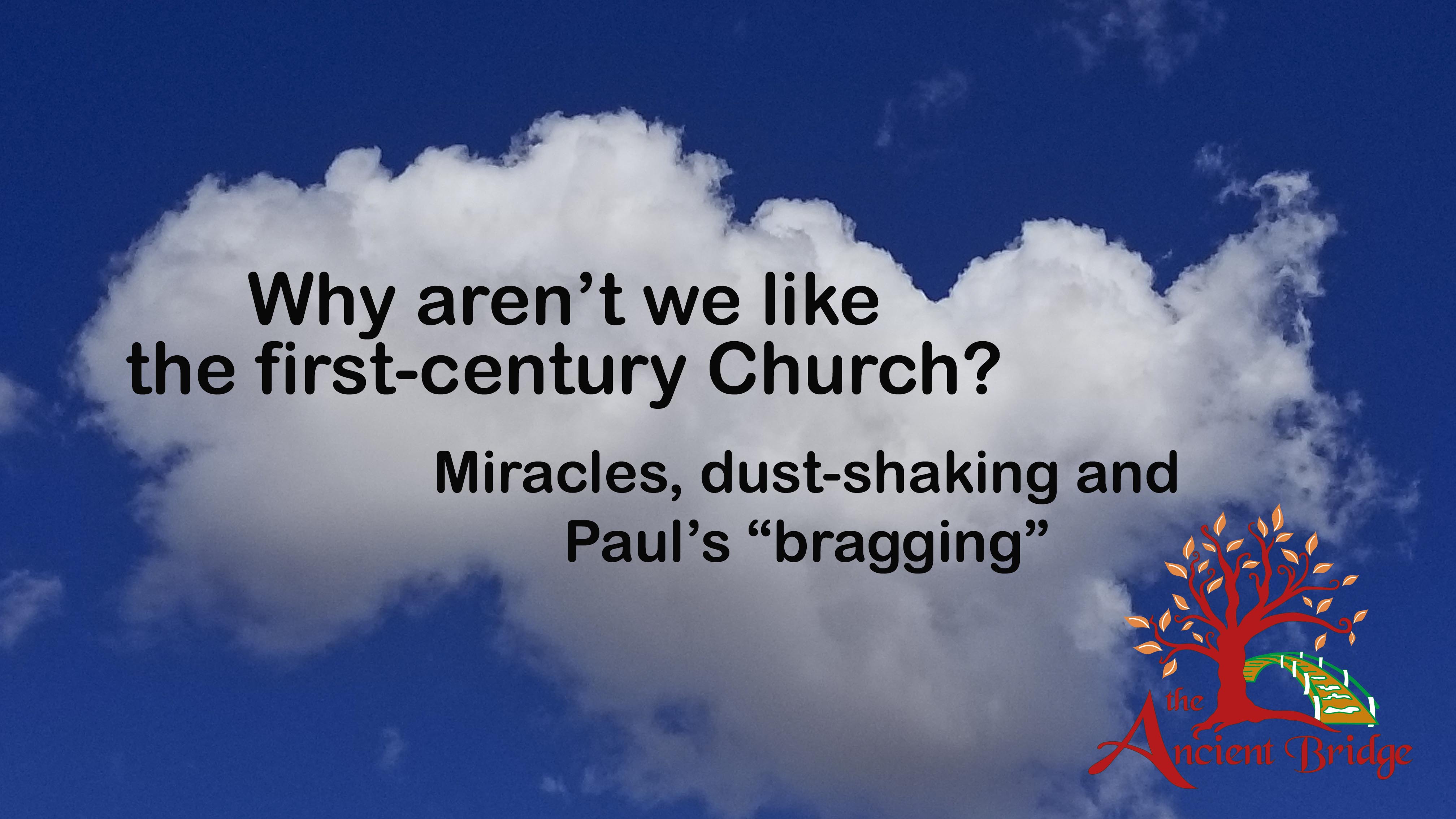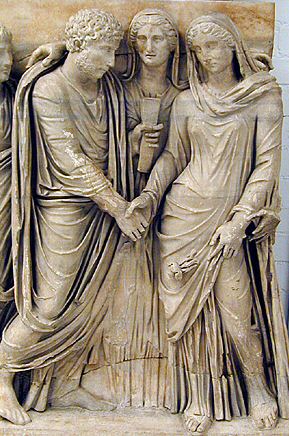 At some point, I will follow this up with a teaching in writing but as for now you will have to make due with the two videos I put up on youtube.
At some point, I will follow this up with a teaching in writing but as for now you will have to make due with the two videos I put up on youtube.
Understanding the ancient dynamic of “voice” – namely, who had the authority to speak and where and when and what about — in the ancient world is a real paradigm buster. Tune in to learn about the purpose of miracles and why some prophets worked them and others did not. Why were miracles commonplace as long as the Church was an outsider organization? What changed? Exactly what was the function of miracles in the early church? You might be very surprised.
Part 1: Miracles and Voice in the Ancient World
Part 2: Dust-shaking and Paul’s “bragging”






















Excellent and thank you for the new insights that make so much more sense and gives more clarity!!!!
This is really helpful and makes a lot of sense, thank you. I’m wondering how the passage where Jesus is unable to do many miracles due to the local lack of faith fits in?
That’s a great question and there are a lot of theories but no absolute solid answers. My theory is that the people were determined not to believe–not just skeptical, because the miracles were performed in order to overcome the skepticism that we should have when someone rolls into town claiming to be the voice of God. If they were determined not to accept Him under any circumstances, then there would be no reason for God to grant a healing, exorcism, or resurrection. After all, Yeshua/Jesus shouldn’t have to beg or manipulate people into believing Him when they don’t want to.
Now, the reason I believe they were absolutely unwilling to believe in his own hometown is because of something called “limited goods.” In the ancient world, it was believed that there was only so much honor (renown) to go around. Now, with things like food, money, etc. that was absolutely true–there was only so much to go around. But in ancient societies, they practiced a form of honor where, if we came from the same town and you had more honor because you were doing awesome things, then my honor had to decrease. It was actually considered greedy to “steal” honor from others by excelling in any way, within your peer group. If Yeshua, from that small village, was working miracles–well, in the eyes of the locals, they were quickly becoming pond scum in comparison. When John’s disciples were upset because Yeshua was outstripping John and taking more followers, a normal man would have been upset, but John actually acknowledged that he had to decrease in reputation (honor) in comparison. Today, we know that everyone who behaves themselves can and should have a good reputation, and can be esteemed based on their actions regardless of what others are doing–but in those days the opposite was true.
Hope that helps!
Yes that does help, thank you. Puts Phil 2 in perspective, doesn’t it? “Don’t hold on tight to your honour, be like Christ, let it go – and trust God to give you proper glory in the proper time.”